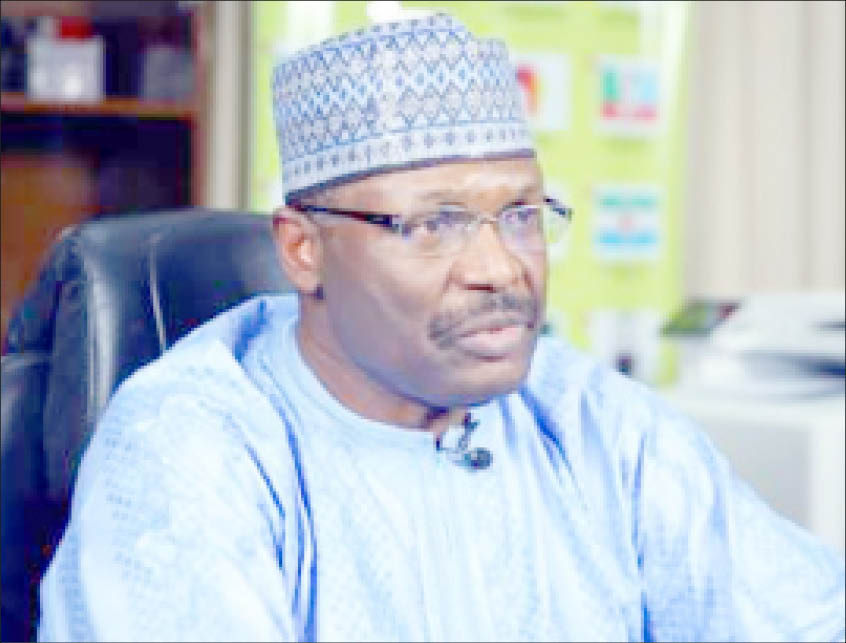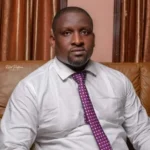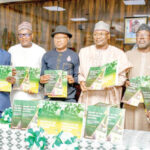With 24 persons killed and over 20 others injured in the 2023 general elections related violence so far, the Independent National Electoral Commission (INEC) and civil society organisations are worried. Many Nigerians are also apprehensive over the possibility of the success of the elections, which seem to have generated more interest than previous exercises in Nigeria’s democratic history.
The latest of such incident was in Maiduguri, Borno State, where one person was reportedly killed and scores injured, while vehicles and other properties worth millions of naira were damaged when the campaign train of former Vice President Atiku Abubakar and Peoples Democratic Party (PDP) candidate was attacked last Wednesday.
The INEC, on September 28, lifted the ban on public campaigns to enable candidates and their political parties sell their manifestoes to voters ahead of the elections.
Section 94(1) of the Electoral Act provides that campaigns shall last for 150 days.
- Buhari mourns renowned gospel singer, Sammie Okposo
- 65 Nigerian troops deployed to Mali on stabilisation mission
The 2023 general elections are slated for February 25 for president and vice president, as well as National Assembly, while March 11 would be the turn of the governorship and state houses of assembly respectively.
Since the electoral body released the final list of candidates for the elections, there has been apprehension over politically motivated violence across the country, coupled with threat of insecurity.
…INEC raises the alarm
Reacting to the rising spate of violence, the INEC chairman, Professor Mahmood Yakubu, said the commission would convene a meeting with leaders of political parties in few days.
Yakubu, who raised the alarm in Abuja at the training on election technology for the 2023 general elections, said the clashes between opposing parties and their supporters were worrisome.
This is coming less than a month after the signing of a peace accord by political parties and their presidential candidates as championed by the National Peace Committee (NPC) on September 29 in Abuja.
Daily Trust Saturday reports that clashes have been mostly recorded among supporters of the All Progressives Congress (APC), Peoples Democratic Party (PDP), New Nigerian Peoples Party (NNPP) and the Labour Party (LP).
Yakubu said, “As the commission is working hard to ensure a credible process in the forthcoming elections, reports of clashes among parties and their supporters in some states are worrisome.
“Also worrisome is the reported denial of access to public facilities for parties and candidates in some states. Let me caution parties and their supporters to focus on issues and steer clear of attacks.
“These are not only violations of the Electoral Act, 2022 but also negate the voluntary commitment by all political parties and candidates to the letter and spirit of the peace accord signed about three weeks ago,” Yakubu said.
He also warned that parties, candidates and their supporters should not, by acts of commission or omission, further complicate the prevailing security situation in the country.
He said there was no need for electoral violence since votes would count with the deployment of technology, including the Bimodal Voter Accreditation System (BVAS), which doubles as a device for accreditation, as well as the upload of the polling unit level result sheets to the INEC Result Viewing (IReV) portal on the election day.
In March, at the Rano Township Stadium, Kano, a man was killed at a political rally when Governor Abdullahi Umar Ganduje went to inaugurate the APC executive for the Kano South senatorial district.
Also, one Mr Gbenga Ogbara, the APC chairman in Atakumosa Local Government Area, was killed by gunmen at Owode Igangan on April 11.
This was followed by the killing of two PDP supporters on April 21 at the Twin Hill, Miango, Bassa Local Government Area when gunmen attacked the convoy of a member representing Jos North/Bassa in the House of Representatives during a thank-your tour.
In Aribi and Kuchi villages, Kagarko area of Kaduna State, the APC chairman of Aribi ward, Mr Iliya Auta and one other person were killed when gunmen attacked the communities on April 26.
Mr Franklin Oputu, an APC chieftain, was killed in his house in Bay Bridge road, Yenagoa, Bayelsa State the following day, April 27.
Again, Sir S. J Ntefre, a former PDP chairman in Oruk Aman Local Government Area, was killed in the bush on May 18 by gunmen who kidnapped him.
In Minna-Miriga road, Niger State, on May 25, three PDP delegates were killed by bandits while they were returning to Miriga after the party postponed it primary due to protest.
On June 11 in Itaji Ekiti, Ado-Ekiti, Ekiti State, Mr Tope Ajayi, a staunch supporter of the APC, was killed during a clash with supporters of the Social Democratic Party (SDP) during campaign in the area.
Also, four APC supporters were injured at Oba Laoye Grammar School Ede, Osun State, on July 7 when supporters of the PDP reportedly attacked them during a campaign rally.
On July 21, Doe Ilimia, a PDP youth leader and one other person were killed when gunmen invaded the former residence behind Excellent Academy, Jalingo, Taraba State.
Two days later, on July 23 at Imiringi Road, Yenagoa, Bayelsa State, Odeinyefa Ogbolosingha, a PDP chieftain, was killed by suspected hired assassins.
In the Sapele area of Delta State, same July 23, Cyril Mudiagbe, an aide to Deputy Senate President Ovie Omo-Agege, was killed at his residence.
Also, at Oloba ward, the Atapara area of Ede in Osun State, a man simply known as Kuranga was killed when thugs invaded a political meeting.
On October 7 in Akwa Ibom State, three persons, Albert Akpan, a younger brother to the Akwa Ibom APC gubernatorial candidate; Imoh Isang, a chief protocol officer and a police orderly were killed by gunmen.
On October 8, Lucky Idoko, an APC councillor representing Unadu town, Igbo-Eze lga, was killed by gunmen while on a motorbike.
On October 15, one person was killed and 18 others injured in Gusau, Zamfara State when APC and PDP youths clashed at the state capital.
In Ebonyi State, at Obegu community, Ishielu, Celestine Egbuaba, an APC youth leader for Obegu ward, was killed in what was termed a politically motivated attack on October 16.
There were other reported cases of electoral violence in the Federal Capital Territory (FCT), Oyo, Nasarawa, Kaduna, Ebonyi, Katsina and Lagos states, among others.
CSOs speak
Speaking on the development, the chairman, Partners for Electoral Reform (PER), Ezenwa Nwagwu, a lawyer, said, “We have continued to make the point about our politicians and political class that distance themselves from reforms, enamoured by the old way and respect only dubious advantage.”
He said expectations from the Electoral Act, 2022 were almost fading as a result of the inability of security agencies to proactively deal with those who breach electoral laws. He added that INEC had embarked on impotent warnings to politicians rather than calling them out or naming and shaming them.
On his part, the executive director of the Resource Centre for Human Rights and Civic Education (CHRICED), Dr Ibrahim M. Zikirullahi, said there was the need for vigilance.
“We know there are political interests who may want to subvert the electoral process but their will should not be allowed to prevail over the will of the Nigerian electorate. The key to ensuring that these desperate elements don’t undermine the process is to ensure there is vigilance,” Zikirullahi said.
Also, the director-general of the New Dream for Grassroots Development (NDGD), Dr Onwubuya Breakforth, urged the INEC to set up a monitoring team to ensure that the law on hate speech is adhered to as stated in the Electoral Act, 2020 (as amended).
“INEC must be proactive to ensure that electoral offenders are brought to book as enshrined in the law. We unequivocally condemn attempts by some state governments to allow non-state actors to attack opposition political parties from holding their political campaigns in their domains.
“Such actions violate the constitutional rights of individuals and political parties from running their campaigns in any part of Nigeria. For instance, the recent clash between APC and PDP supporters in Zamfara and Kaduna states last weekend is condemnable. This portends danger should such political behaviour be allowed to fester,” Breakforth said.
Furthermore, the director, Centre for Democracy and Development (CDD), Idayat Hassan, said it was saddening but not surprising that political violence had continued to rise.
She said, “The proliferation of non-state actors, including cult groups, self-help groups, such as vigilantes, ethnic militia and community policing outfits, all with guns in their hands, present challenges for the elections.
“The law is clear – electoral offences are within the mandate of INEC, as well as police. Errant parties, candidates and supporters must be brought to account. Ignoring such acts is not good for the forthcoming elections.”
Also, the country director, ActionAid Nigeria, Ene Obi, said the issue of violence in the ongoing campaigns was a source of concern.
“We believe that every Nigerian has a right to campaign; it is dependent on the people to listen to the person to convince them on how they are going to solve problems. If you don’t listen to them, what is the choice you are going to make?
“We call on the people to be patient and tolerant as everybody has a right to freedom of movement and association,” Obi said.
Reacting to the situation, the National Security Adviser (NSA), Major-General Babagana Monguno and Inspector-General of Police Usman Alkali Baba, warned those planning to undermine the 2023 general elections to have a rethink.
Monguno said President Muhammadu Buhari had given all the security agencies a marching order to deal decisively with any individual or group that wants to disrupt the elections.
“Every Nigerian must be allowed to cast his vote and such vote must count,” Monguno said.
On his part, IGP Baba said the police were committed to ensuring peaceful and credible elections 2023. He advised political actors to play by the rules.
He said there was the need for quick dispensation of justice and adequate punishment for those who were arrested for electoral offences to serve as deterrent to members of the public, and called for synergy among security agencies during the campaigns.

 Join Daily Trust WhatsApp Community For Quick Access To News and Happenings Around You.
Join Daily Trust WhatsApp Community For Quick Access To News and Happenings Around You.


